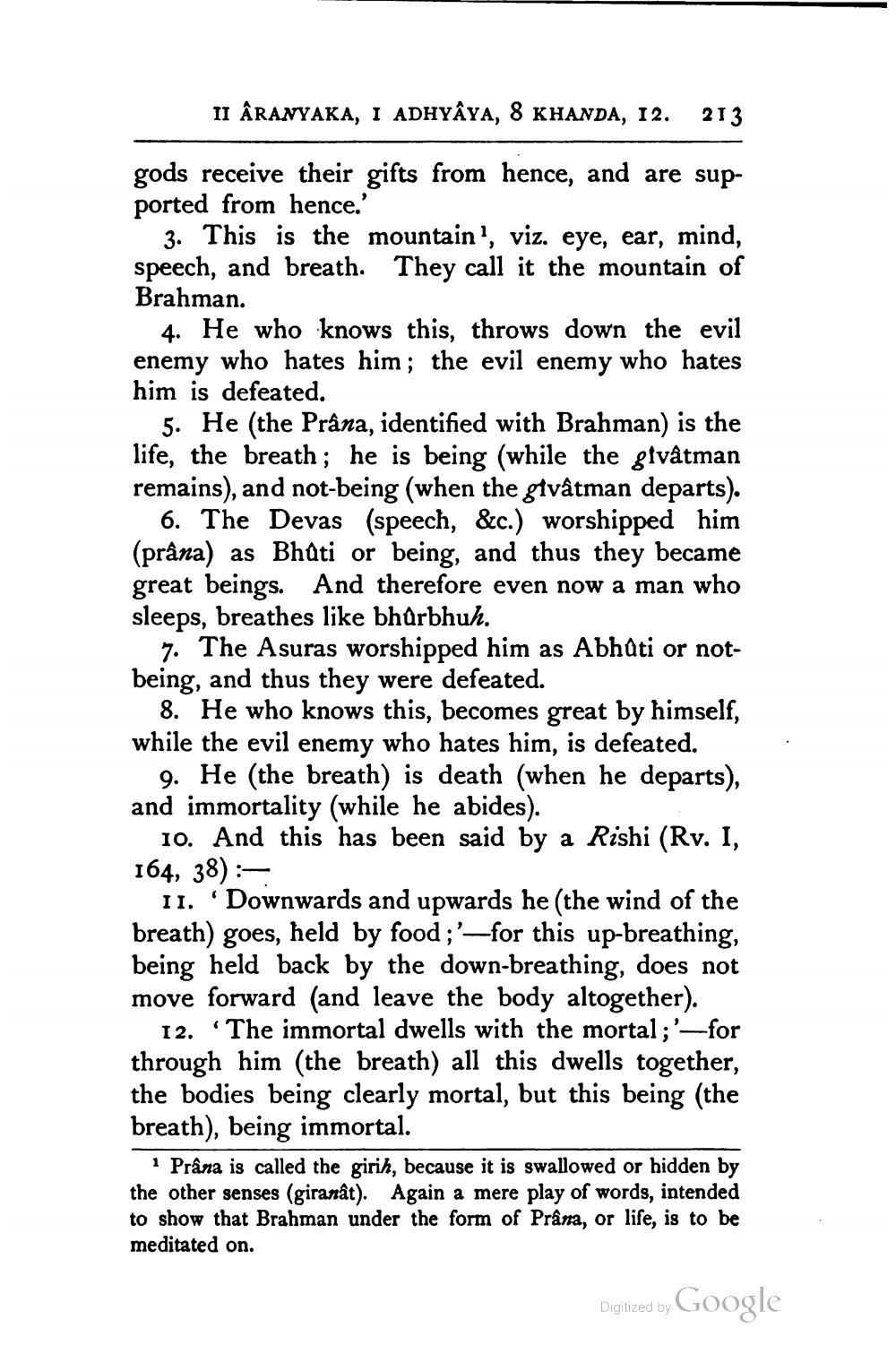________________
II ÂRANYAKA, I ADHYAYA, 8 KHANDA, 12. 213
gods receive their gifts from hence, and are supported from hence.'
3. This is the mountain", viz. eye, ear, mind, speech, and breath. They call it the mountain of Brahman.
4. He who knows this, throws down the evil enemy who hates him; the evil enemy who hates him is defeated.
5. He (the Prâna, identified with Brahman) is the life, the breath; he is being (while the givâtman remains), and not-being (when the givâtman departs).
6. The Devas (speech, &c.) worshipped him (prâna) as Bhati or being, and thus they became great beings. And therefore even now a man who sleeps, breathes like bhūrbhuh.
7. The Asuras worshipped him as Abhati or notbeing, and thus they were defeated.
8. He who knows this, becomes great by himself, while the evil enemy who hates him, is defeated.
9. He (the breath) is death (when he departs), and immortality (while he abides).
10. And this has been said by a Rishi (Rv. I, 164, 38) :
11. Downwards and upwards he (the wind of the breath) goes, held by food;'--for this up-breathing, being held back by the down-breathing, does not move forward (and leave the body altogether).
12. "The immortal dwells with the mortal;'-for through him (the breath) all this dwells together, the bodies being clearly mortal, but this being (the breath), being immortal.
1 Prâna is called the girih, because it is swallowed or hidden by the other senses (giranât). Again a mere play of words, intended to show that Brahman under the form of Prâna, or life, is to be meditated on.
Digitized by Google




